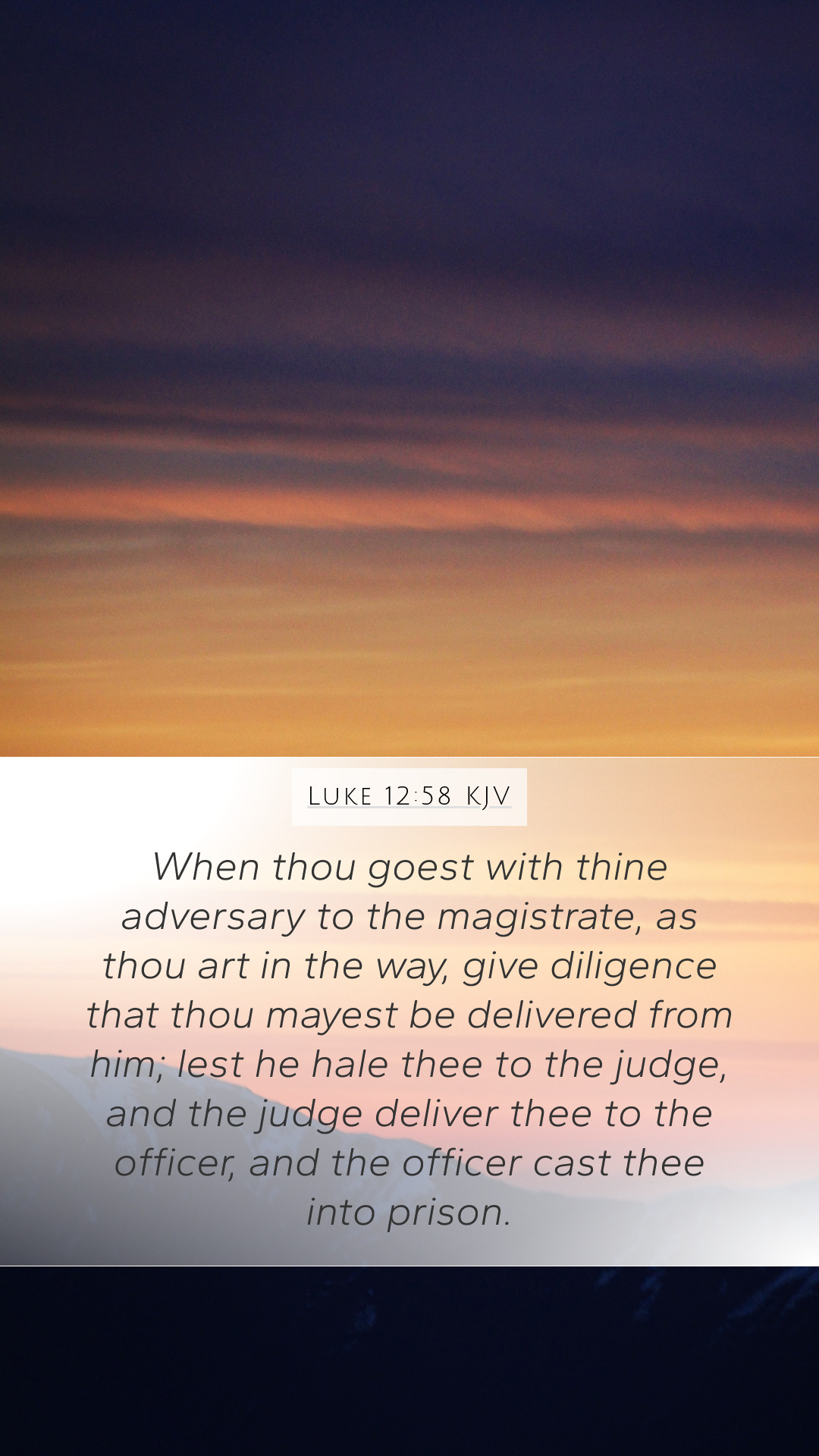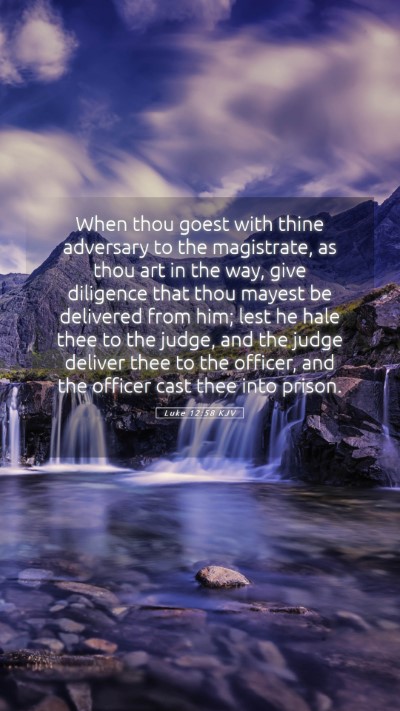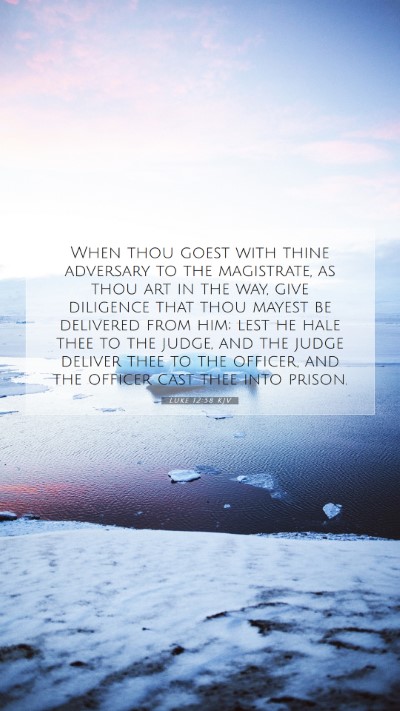Understanding Luke 12:58
Verse: "When you go with your adversary to the magistrate, make every effort along the way to settle with him, lest he drag you to the judge, the judge deliver you to the officer, and the officer throw you into prison." (Luke 12:58)
Bible Verse Meanings
Luke 12:58 addresses the importance of resolving conflicts before they escalate into formal legal proceedings. In this verse, Jesus teaches His followers about the prudence of settling disputes amicably, thereby avoiding the consequences that may follow if such matters go unresolved. Below is a detailed interpretation based on various public domain commentaries.
Commentary Insights
-
Matthew Henry:
Henry emphasizes the practical wisdom in this verse, advocating for harmony and reconciliation rather than conflict. He urges that it is better to settle disagreements outside of court to prevent the severe consequences of legal judgment. He interprets the magistrate as a metaphor for God’s judgment, indicating that humans should seek to rectify their issues before they become irretrievable.
-
Albert Barnes:
Barnes reflects on the legal customs of the time, suggesting that the advice given by Jesus pertains to both spiritual and social dimensions. He stresses the urgency of making peace with adversaries, highlighting that human conflicts can lead to divine judgment if left unresolved. Barnes points out that the vagueness of the term "adversary" extends beyond legal foes, encompassing any relational discord.
-
Adam Clarke:
Clarke discusses the significance of this verse in the context of Jesus’ ministry on reconciliation. He notes that the process of settling disputes should be viewed as a personal initiative that reflects one's character and relationship with God. Clarke interprets the magistrate not merely as a judicial authority but as a representation of life’s inevitable tribulations, warning believers to take proactive steps in reconciliation to avoid deeper spiritual consequences.
Application to Daily Life
This verse serves as a reminder that proactive efforts toward resolving conflicts can prevent detrimental outcomes. In practical terms, it emphasizes the need for humility and compromise. Here are some applications that can help make this teaching relevant:
- Conflict Resolution: Engage in open dialogue with those you have disagreements with.
- Personal Accountability: Assess your contributions to conflicts and seek forgiveness when necessary.
- Community Relationships: Foster a spirit of reconciliation within your community or social circles.
Cross References
- Matthew 5:25-26 - Jesus advises settling matters quickly with adversaries.
- Proverbs 25:8-10 - A reminder of the consequences of unresolved disputes.
- James 3:18 - The fruit of righteousness comes from peace.
Conclusion
In summary, Luke 12:58 invites deep reflection on the actions we must take when faced with conflict. It encourages believers in their spiritual journeys to remain diligent in seeking peace and understanding in their interpersonal relationships. This scripture encourages a proactive approach to resolving conflict, enhancing our understanding of both Scripture and the teachings of Jesus. By applying these insights, individuals can foster healthier relationships and enrich their spiritual lives through meaningful Bible study.
Related Bible Study Topics
- How to interpret Bible verses effectively.
- Understanding difficult Bible passages in light of reconciliation.
- In-depth analysis of Jesus’ teachings on conflict resolution.


